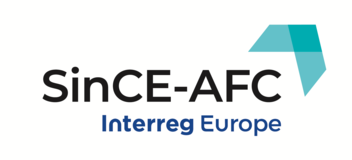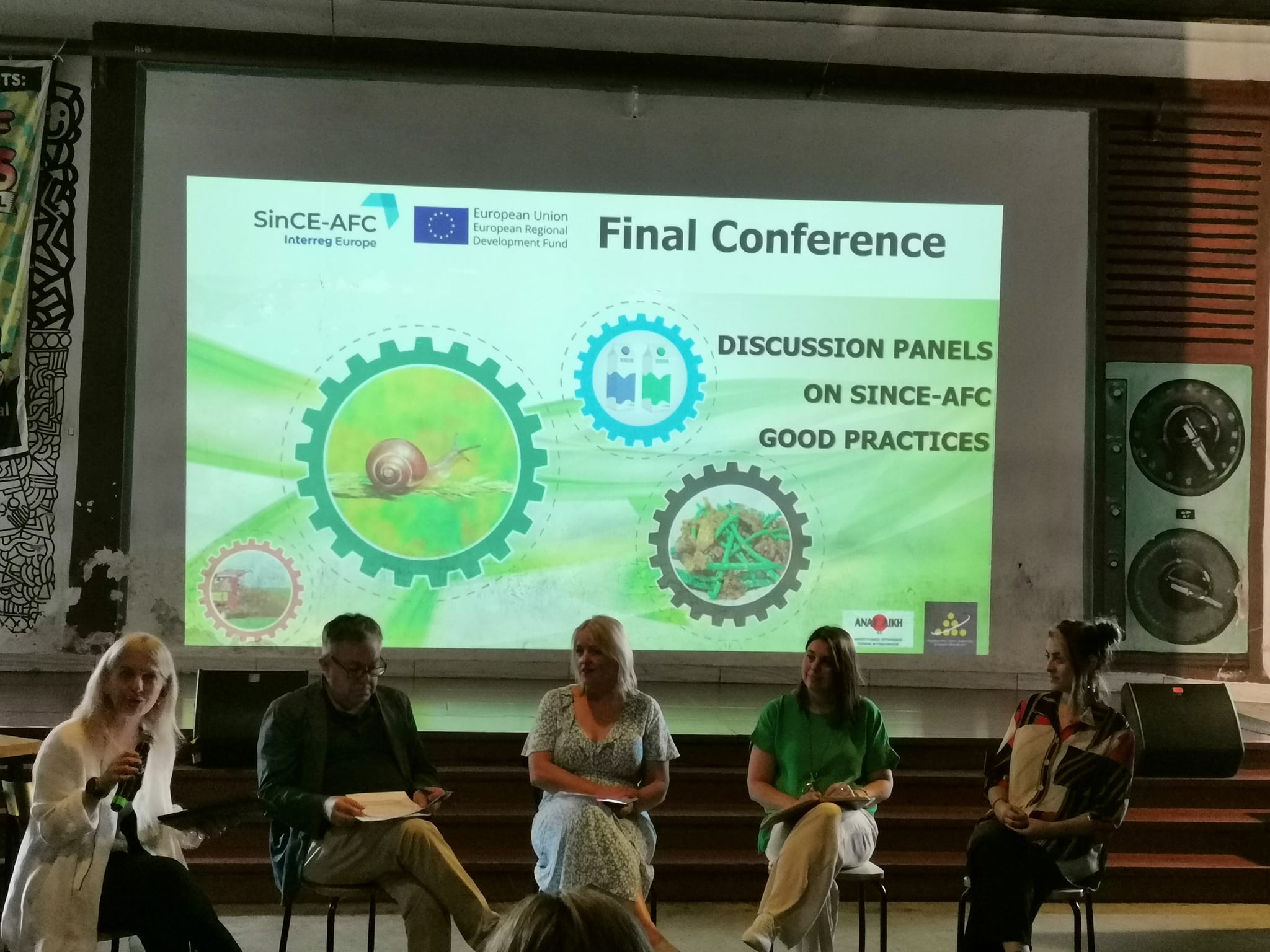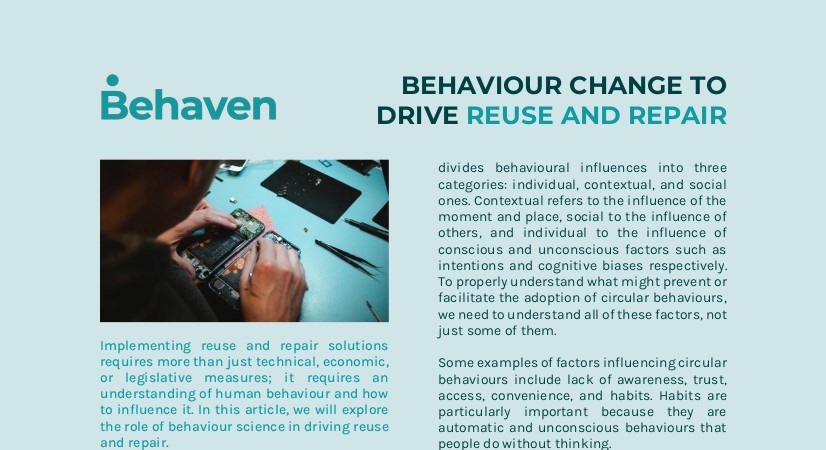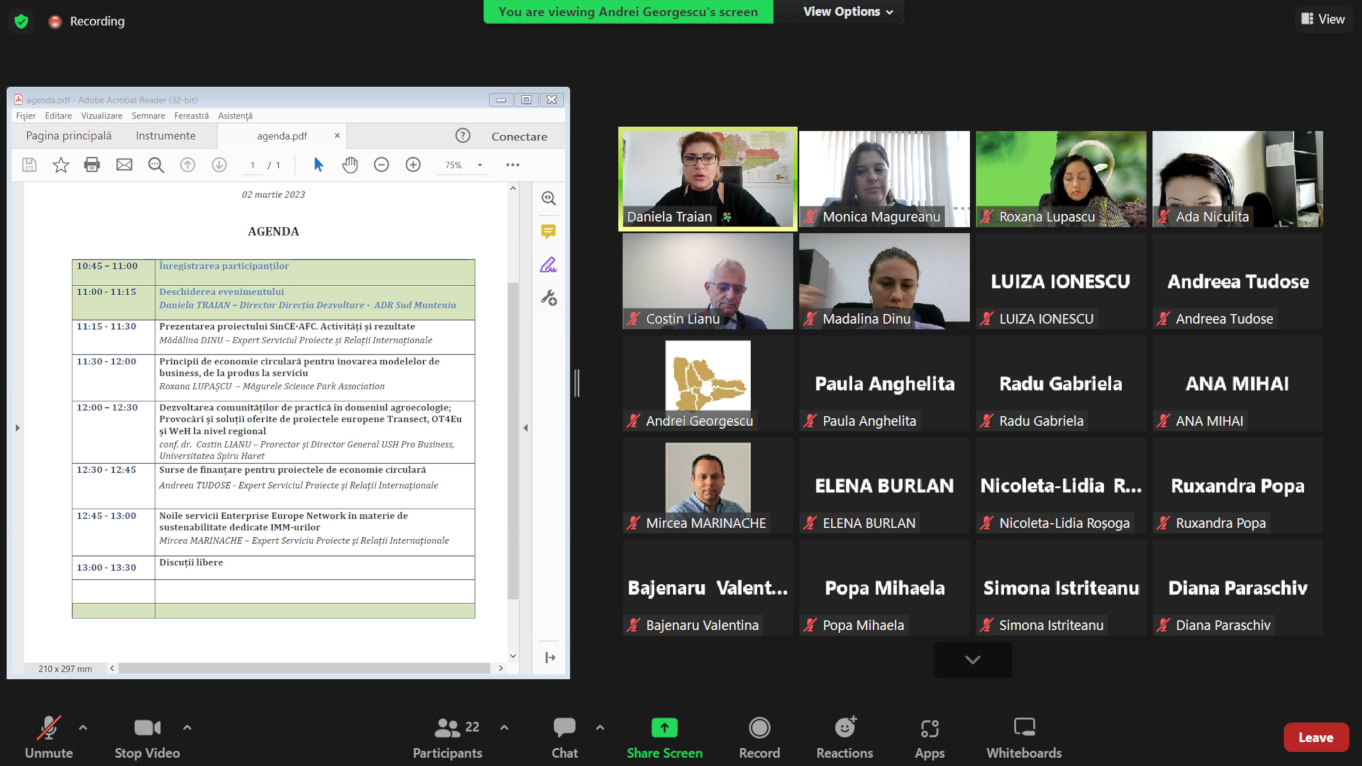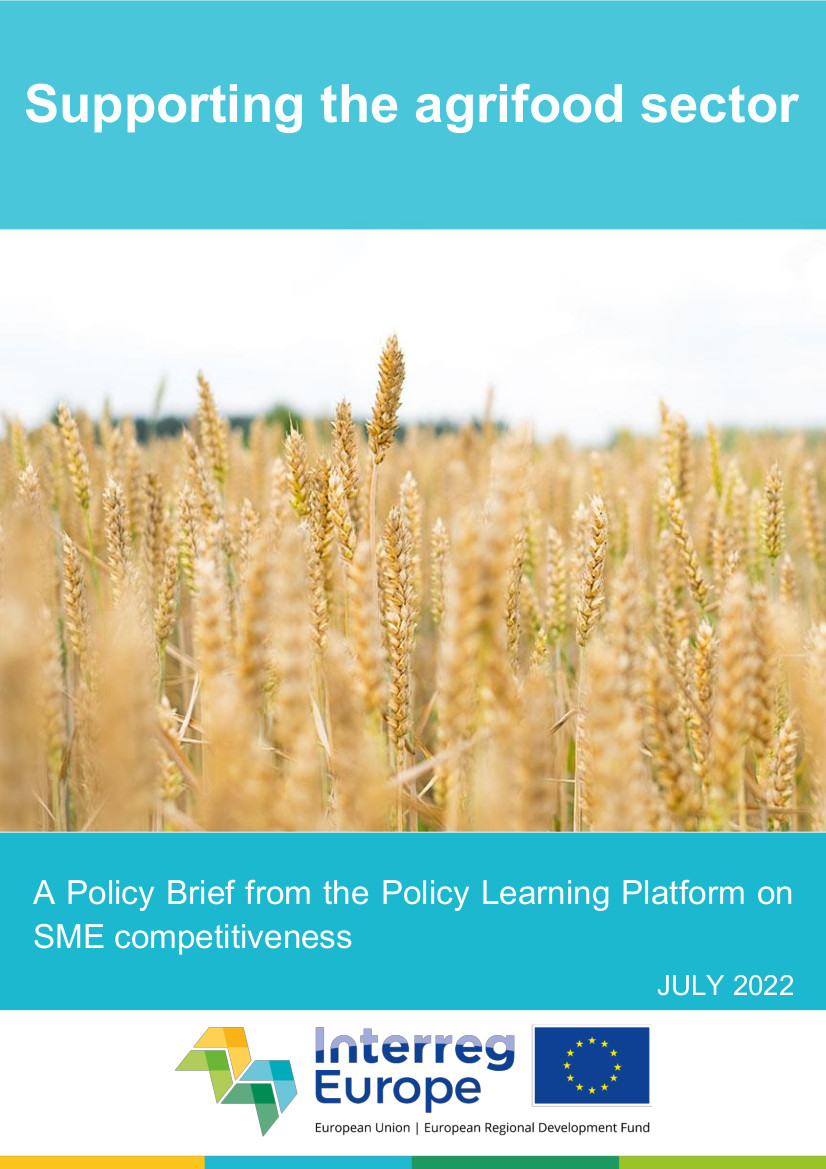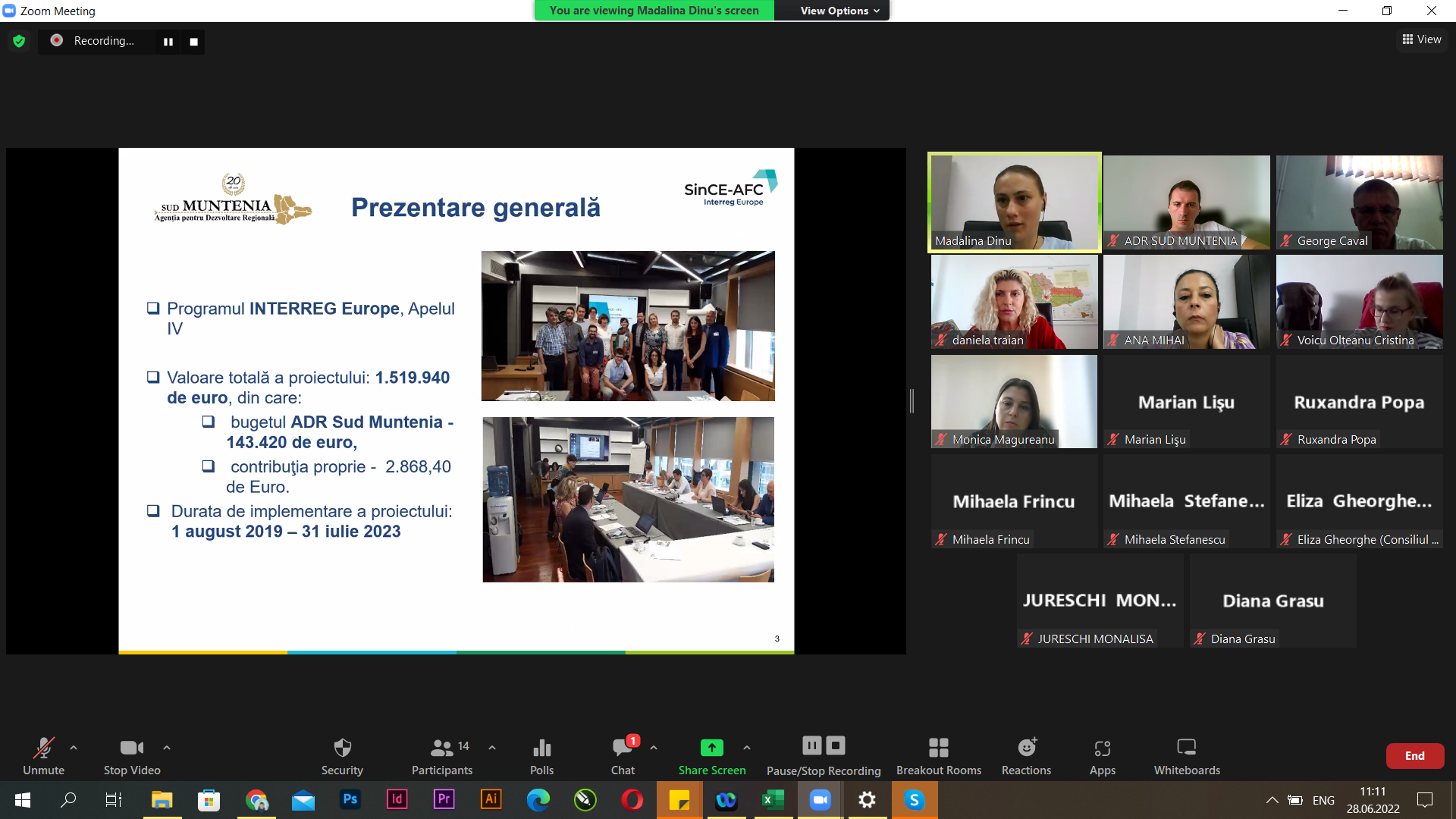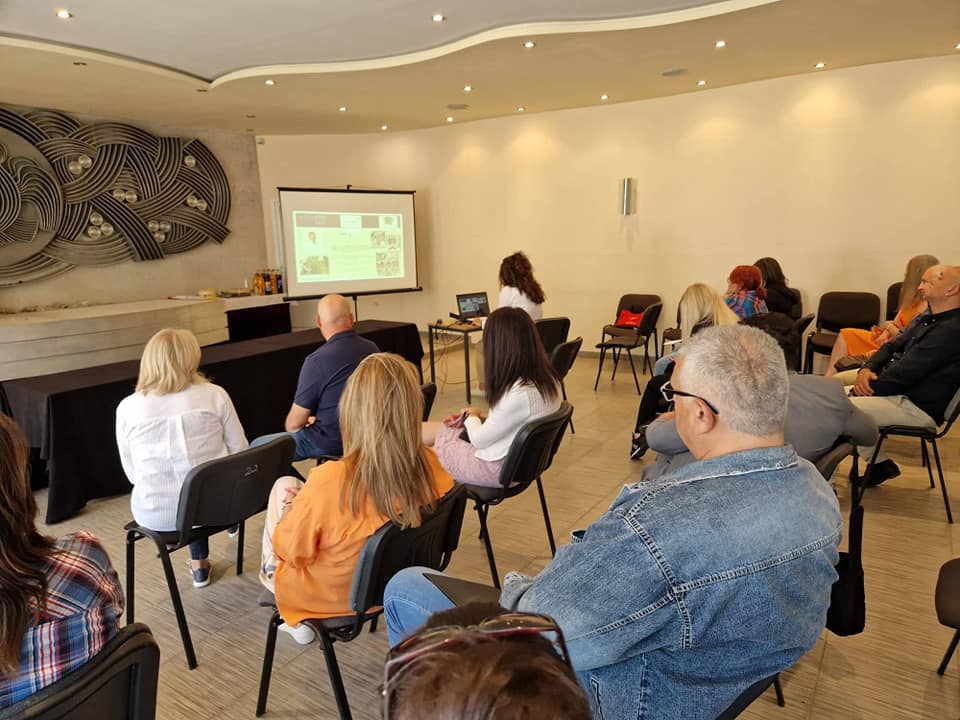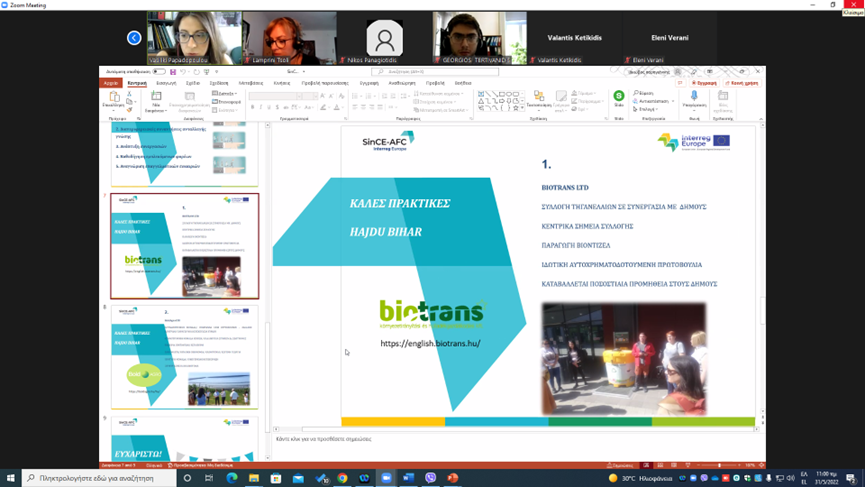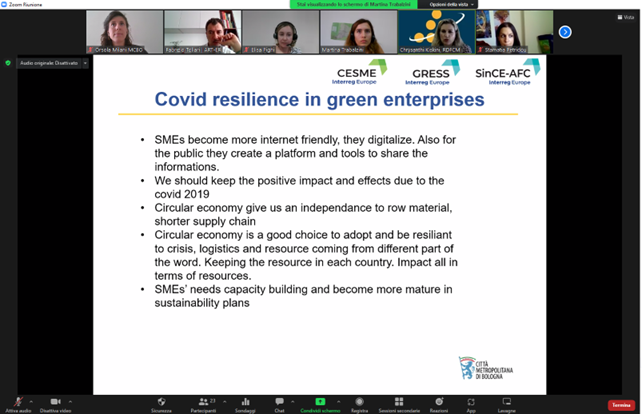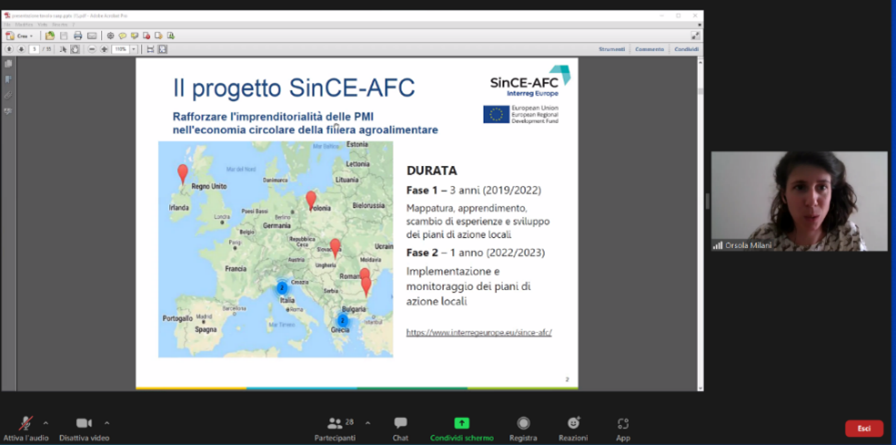• Marino Cavallo (MCBO): briefly introduced the thematic of the group and presented the scope of the session.
• Silvia Marra (Last Minute Market): introduced the activities of her social enterprise, since they did not participate in the working group the previous time.
• Laura Adreazzoli (Ambiente Italia): presented the first results of the research on local markets and the Appennine Biodistrict carried out in the last three months.
The goal was to provide MCBO with a technical advice in term of legal and economic analysis of the territorial context a collection of Italian good practices and suggestions on potential actions on circular economy to be applied in the territory of MCBO.
The Circular economy action plan of March 2020 was the first legal/policy basis presented, together with the Italian strategy for the bioeconomy. After that, the view went deepen in the two areas of interest for the MBO: Appennine Biodistrict and local markets. Italian good practices in agri-food circular economy, in order to map the Italian situation.
The proposed actions are:
- training of experts in circular economy; it can be implemented either with trainings for AFC entrepreneurs in order to spread Circular Economy (CE) knowledge, either with specific trainings for high-level experts who can add CE themes to their competences.
- promotion and spreading of CE knowledge; implementation can be done through school education, local markets dissemination of materials on CE
- The same analysis has been conducted for local markets, mapping good practices in markets.
Proposed actions are:
- creation of collection points for exceeding food from markets
- information campaign for sellers in local markets about garbage management, selling products short supply chain.
• Mario Zambrini (Ambiente Italia): added the difficulties on applying CE actions on a large scale. A cross-sectoral approach policy would be preferred, in order to make these actions more effective and long lasting.
• Silvia Marra (Last Minute Market): agreed on how the mentioned good practices from the Metropolitan cities of Milan and Turin are interesting and the most advanced at national level; however, she highlighted that Last Minute Market’s experience taught that it does not exist a standardised solution that can fit all and so that it’s necessary to bring the actions in the specific reality that is going to be touched, fitting to the local features in order to bring sustainable solutions.
• Stefano Sozzi (LAG Appennino Bolognese): agreed on the focus on local markets, as it is of interest and requested from most of the municipalities of MCBO. Often the markets are able to absorb the not sold food, with a very low exceed. He pointed out that one of main weaknesses at local level deals with the management/ organizational issue in loco with reference to the food processing phase.
• Cecilia Depau (Mercato Ritrovato): introduced the themes of the online local markets, with home delivery in online.
• Bruno Alampi (MCBO): he told off what told from the colleague of Mercato Ritrovato and commented that the actual diffusion of markets on the territory has to be revised with the new ones recently started.
• Sozzi (LAG Appenino Bolognese) introduced the example of new market regulation in the municipality of Sasso Marconi. The trainings do not have to focus on producers, but rather on market management organizations, as it has to be built the infrastructure around the producers for circularity.
• Francesco Silvestri (Eco&Eco): thanked for the presentation on the research led by Ambiente Italia, that has been very inspirational and interesting in terms of approach and interpretation in particular with reference to the integration of circular economy dimension in the concept of Bio-district.
• Marino Cavallo (MCBO): thanks all the participants and sets the agenda for the coming months: the draft of the research document will be disseminated to the local stakeholder group participants to collect comments and reviews in the next 20-30 days. The work will be presented during an event in Appennine at the beginning of next year and previewed in the next LSG meeting before the end of the year.
